The mid-2000s was a watershed time for the King Street area. Full of small but growing businesses, the neighborhood was far removed from its days as Madison’s “red light district” but had an elephant in the room: Club Majestic. A dance club built within a century-old vaudeville theater building, it was shut down in late 2006 amidst violence that threatened to set back the progress its neighbors were making. So many folks were skeptical when two young men from Los Angeles bought the building in order to open a live music venue. Would this just be more of the same?
For Matt Gerding and Scott Leslie, who celebrate their 10th anniversary of ownership on Friday night by hosting a free Against Me! concert on the street, the early days were an uphill battle dealing with heavy oversight from the city and neighborhood committee while also more or less rebuilding from the ground up. But in the decade since opening on Sept. 29, 2007, the pair has turned the Majestic Theatre into one of the Midwest’s premier live music venues. The following is a (relatively) brief recollection of the story.
The First Settlement District, 1990s through 2006
Ryan Huber, owner, Context Clothing: 1998 was when I started working in this neighborhood. I worked at the Great Dane at that point and basically there wasn’t really much going on then. It was like Ancora and the Great Dane. Madison’s was a clothing store and the Majestic was still a [movie] theater.
Ted Peterson, director of operations, Great Dane Pub & Brewery Co.: Back in the ’80s, [King Street] used to be like the red light district of Madison. We had done a lot of work to try to make it a more family-friendly spot to hang out at. We formed a King Street committee back in the mid-’90s to make sure that folks felt comfortable coming down to King Street.
Huber: I used to live in the Bellevue building on East Wilson and I would actually walk to go see movies at the Majestic, and I always loved it. So [in 2003] when I heard that the Majestic was going to turn into a club, I was curious to see what that was going to be like.
Nick Nice, local DJ: When it first opened, the first launching of it, it was kind of almost they were targeting more of a gay crowd, sort of being billed as Madison’s first, like, real nightclub and it certainly had that vibe right from the start.
Huber: It had kind of an Alice in Wonderland vibe to it inside.
Ald. Mike Verveer: There were high hopes when the Schiavo family wanted to open Club Majestic given that [the family was] a well-known, local restaurateur. They would be good neighbors and everything would go very well for their endeavor running a [nightclub].
Huber: The vibe of the neighborhood was that this was the new kinda cool neighborhood. [Context] opened [in 2005] and it seemed like this neighborhood was all starting to pop. Natt Spil had opened and I was part of the first bartending crew. The King Club was rolling. Opus was already open. Ancora was always there. Café Continental. Muramoto has just opened their first concept in what is now Morris Ramen and the original Muramoto was just awesome. It was packed all the time.
Nick Nice: Initially there were some really good times at [Club Majestic], but running a nightclub is not for novices. You’ve got to know what you’re doing. It was a huge space to try to keep full. My involvement with it stopped after about a year.
Tag Evers, concert promoter, True Endeavors: I did a handful of rock shows at Club Majestic, but it was not well suited at the time. They were not memorable shows for the most part.
Nick Nice: What ended up happening was that the owners didn’t really have any experience running a nightclub at all, and so they kind of panicked a bit and then they started to do drink specials.
Huber: I can’t remember what the price was but there was a very low price, something crazy all-you-can-drink.
Matt Gerding, current owner, Majestic Theatre: [Club Majestic] had gone through some transformation, but they ended up being primarily a hip-hop club and on weekends they would do, like, $10 all-you-can-drink cover charges.
Nick Nice: I think what most people remember about Club Majestic was the latter part of it where you have these all-you-can-drink specials and then these giant, giant street fights happening after.
Huber: At first really the only difference was just loud cars driving around in circles. No real problems. Everybody was just driving around SUVs with music cranked like all the way. They’d drive up [Webster], take a left onto East Main, come around and back down King Street. And just drive in circles like all night, from 9:30 or 10 until bar time. Right around bar time is when it got real wild.
Andy Haker, owner, Madison’s: Every weekend night was a new adventure observing masses of people involved in all-out street brawls. I’d never seen anything like it, and coming from downtown Minneapolis, I feel like that is saying something.
Dave Cieslewicz, former mayor of Madison: The big issue was that [Club] Majestic, for whatever reason, had become the focus of some unruly and even violent activity. It was starting to develop a reputation that attracted a bad element and kept away folks who just wanted to enjoy some good music.
Huber: I remember one morning I came into work and there was a broken beer bottle in the doorway. And blood — pools of blood. I was like, oh shit. I heard that police got involved because there was a fight and a guy stabbed another guy in our doorway with a bottle.
Nick Nice: In hindsight it’s crazy to think that that went on on King Street. It was pretty out of control.
Huber: Then there was I believe a shooting that happened — or at least the guy pulled a gun and may have fired it — but it was in the parking ramp [on Doty Street]. And it was pretty much right away known that that it was somebody from one of those club nights. Police reports are coming out and there’s all this action in the neighborhood that’s not your typical action.
Haker: There were gun shots fired on back-to-back nights. One struck a car window and another hit the wall on the surface lot across the street. On that occasion I kept my guests inside our space, after bar time, just to make sure they weren’t forced out into that situation.
Verveer: The venue was so troubled that it had the dubious distinction of having more police calls for service than any other address in the city at the point of Club Majestic going out of business.
Nick Nice: The city kind of — I don’t want to say they let it happen, but they just didn’t really know how to handle it which you can understand because if you’ve got like 400 or 500 people taking over a street in a sort of like Fight Club-type situation, a couple cops are not going to solve that.
Haker: To be perfectly honest, that was a really rough time for me. I was certain the street activity would clear us out and cause us to close. I remember coming to work each day feeling so much stress and anxiety. Trying to convince my staff to come to work and feel safe on the weekends was the biggest challenge.
Huber: I remember a news station coming to interview me. “What do think of the stabbings and the shootings?” and “Are your customers afraid to come down here?” And I’m thinking that I’m trying to get people to come to my store. I’m not going to go on local TV and say, “Yeah, this neighborhood is terrifying. Don’t come down here.”
Gerding: We didn’t live here at the time so we didn’t really understand the depth to which that was a huge local story until it got announced that we were buying [the building] and every local media outlet was calling us and asking for interviews and whether or not we were going to be playing hip-hop and what our plan was and all this.
Huber: There was discussions about, oh you know, blame it on hip-hop music was something you’d hear. And it was like, well, that’s also something that you just roll your eyes at. Hip-hop is not causing problems in the neighborhood.
Scott Leslie, current owner, Majestic Theatre: The fact of the matter is you put that number of people in a place and you give them a cup and say, “Here you go, drink all you want” — I don’t care where that situation is, you’re going to end up with problems, especially when there’s not any entertainment happening in that situation. Having a DJ is not entertainment in that setting. It’s just a conduit for people who are just getting hammered.
Majestic for sale
Verveer: A very rarely used Madison ordinance allows the chief of police — Noble Wray at that time — to impose emergency conditions on a liquor-licensed establishment. It limited the hours of operation and really greatly reduced [the Club Majestic] business, curtailed their business substantially. Their liquor license wasn’t yanked but the restrictions put on it were untenable for them, and so [in early 2007] they were interested in selling.
Leslie: We bullshitted a bank and they gave us money to [buy] it.
Gerding: That’s the short version. The longer version is that Scott and I met in Los Angeles through my brother and became quick friends. I was working at a booking agency in L.A. and [Scott] was a for-hire piano player and in this band called The Push Stars. We were both pursuing a career in music, and over the course of a few years living together we decided we wanted to open a live music venue. We started looking in different cities and markets and we ended up picking Madison after searching for a while to find the right building.
Leslie: We were 100% a go in Columbus, Ohio. We had a building under contract in a fantastic location that had loads of potential, and we really liked the city. [But] when we heard about the Majestic, it was much less to bite off.
Gerding: And at that point we were able to bullshit a bank into loaning us money to buy the building and renovate it, and that was in 2007.
Leslie: The Columbus project was going to include building out some apartments and renting out retail space. It was an entire city block. We came to Madison and it felt much more manageable. The building needed a lot less work as well, so choosing Madison in reality was one of the few pragmatic decisions we’ve ever made in this entire thing.
Gerding: We were 28 and had never done this before.
Leslie: And really had no business doing it.
Gerding: Yeah, it was the dumbest thing. Looking back at it now, having experienced it all and just knowing how green we were going into it — it’s pretty funny at this point. I actually looked back at our original business plan from over 10 years ago, not that long ago, and it’s just so bad that I can’t believe any bank actually gave us money. We got shut down by, like, five banks initially and I completely understand why now, because we looked green, we sounded green, our business plan was green. We just didn’t know what we were doing. But we figured it out.
Leslie: There were not really a whole lot of people moving to Madison from out of the area to start businesses, or at least it didn’t feel like that was the case. And so a couple of guys who nobody had ever heard of show up in town to buy the oldest theater in the city and turn it into a concert venue when it had just been shut down by the police department — they didn’t believe it.
Verveer: I would be lying if I didn’t say there was some apprehension when these two young guys with no ties to the local community — in fact no ties to Wisconsin as I recall — first introduced themselves. The neighborhood association and the police and I were all, I think to varying degrees, a little skeptical.
Nick Nice: When those guys took over, there was such a bitter taste in the city’s — you know, everybody was kind of like worried about Majestic.
Cathy Dethmers, former owner, High Noon Saloon: I was somewhat apprehensive since they weren’t from Madison and therefore weren’t experienced with how the music scene worked here. But I was hopeful they would be interested in and respectful of the local scene, and I was eager to see what the Majestic could become in different hands.
Ryan Matteson, former local blogger, Muzzle of Bees: I kind of cringe because I think one of my first posts was, like, “What’s going on?” But it wasn’t a sense of apprehension. It was more like, “You guys are coming to town. Don’t let us down.” And you know we’re really hoping that this venue, and two young guys coming into the market, means that they’re going to really help.
Bessie Cherry, former operations manager, The Project Lodge: I never thought of Matt or Scott as young, inexperienced out-of-towners. They came with impressive pedigrees given their relatively young age and they made it clear from the start that they intended to call Madison home.
Nick Nice: I could just tell that they were music people and even if they were naïve to running a venue, they had a better understanding of what it was going to take to make it work. They were clearly music people as opposed to just people getting in it to make a quick buck.
Cieslewicz: I think there was a little bit of uncertainty about Matt and Scott, but we knew they were going to be an improvement over the former situation and they quickly moved to put everyone at ease and to earn our confidence.
Leslie: We had to go to a lot of neighborhood association meetings. One person at a meeting proclaimed that she would do everything she could to stop this from happening unless we had a capacity of 150 or less. And we were like, well, that would certainly stop this from happening.
Nick Nice: Matt and Scott had to battle all of that. I think they had to use plastic cups the first year that they were open. They had all these weird restrictions on their license. I definitely remember the city being like you guys have got to prove yourselves to us.
Verveer: They agreed to do most everything that was asked of them and so ultimately the policymakers on the city’s Alcohol License Review Committee and my colleagues at the city council approved their alcohol license and their theater license without too much difficulty when all was said and done.
Dethmers: [Matt and Scott] reached out to me initially to ask questions about the local scene. They were curious about local bands and about what national acts did well in town and how involved UW students were in the scene here. They expressed a desire to work together behind the scenes so we wouldn’t be directly competing for shows or stepping on each other’s toes.
Cherry: I recall thinking that a fresh perspective and a new life for the Majestic was a huge positive for the Madison music scene.
Renovation
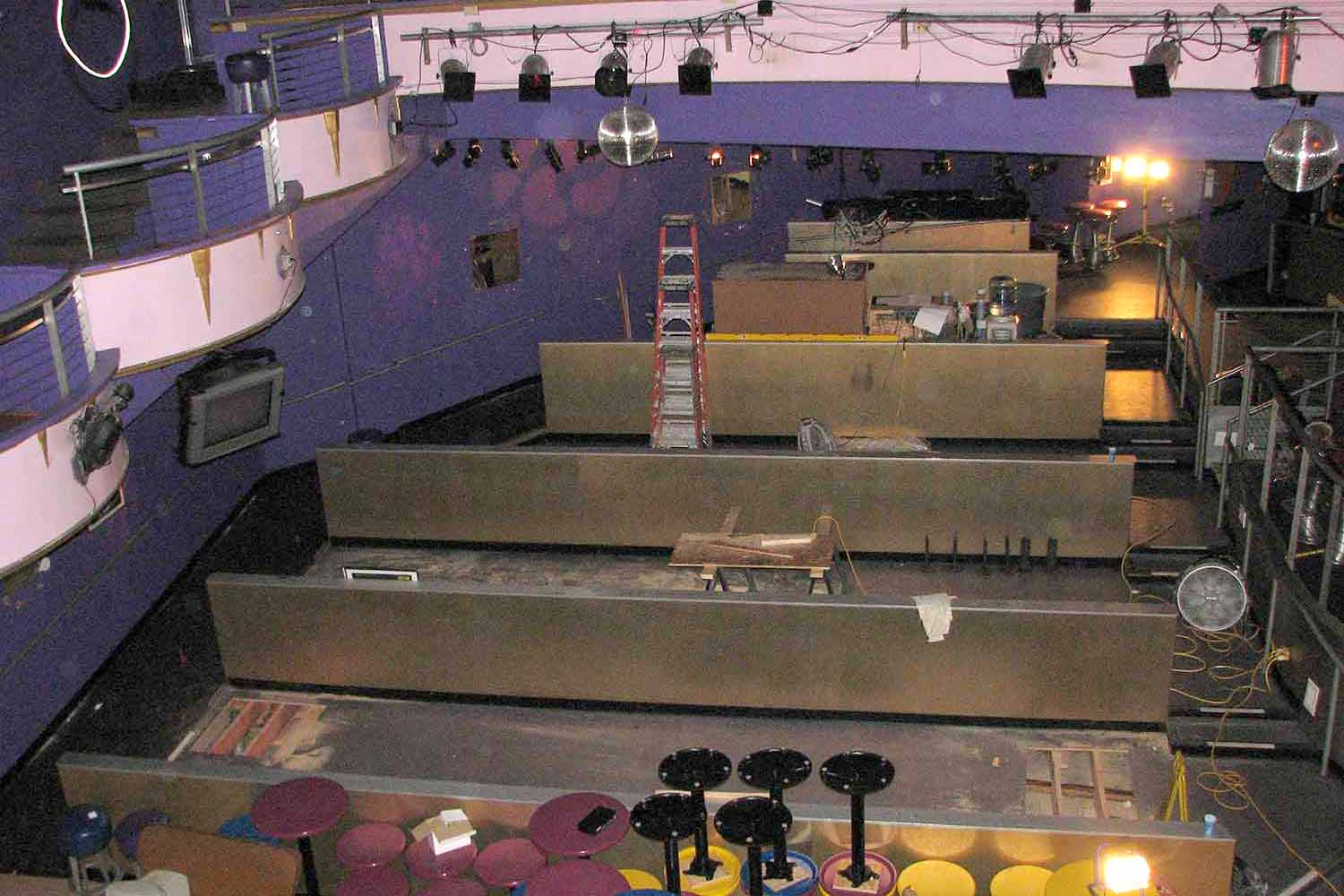
Corey Lockett, former general manager, Majestic Theatre: It was a lot of… purple.
Matt Aro, president, Aro Eberle Architects: I was the architect for the [renovation] project. I also worked on the original Club Majestic remodel several years earlier. We were trying [in 2007] to delicately insert new things to make it more functional and more useful while protecting and preserving the historical nature of the space.
Gerding: The previous owners had remodeled the building pretty extensively, so things like plumbing and electrical were in good shape.
Aro: We were able to redo the stage [in 2007] to make it more functional for live music and live performance. That was a big deal.
Gerding: We had to take a venue that had been remodeled into a flashy dance club with purple walls, bizarre light fixtures, a big DJ booth and VIP rooms [and turn it] into a classic concert hall vibe, adding artist green rooms and more.
Lockett: When we first got there, [there was] a lot of furniture that was old like Mickey Mouse stuff, actually Disney stuff. They even had a garage sale before I got there.
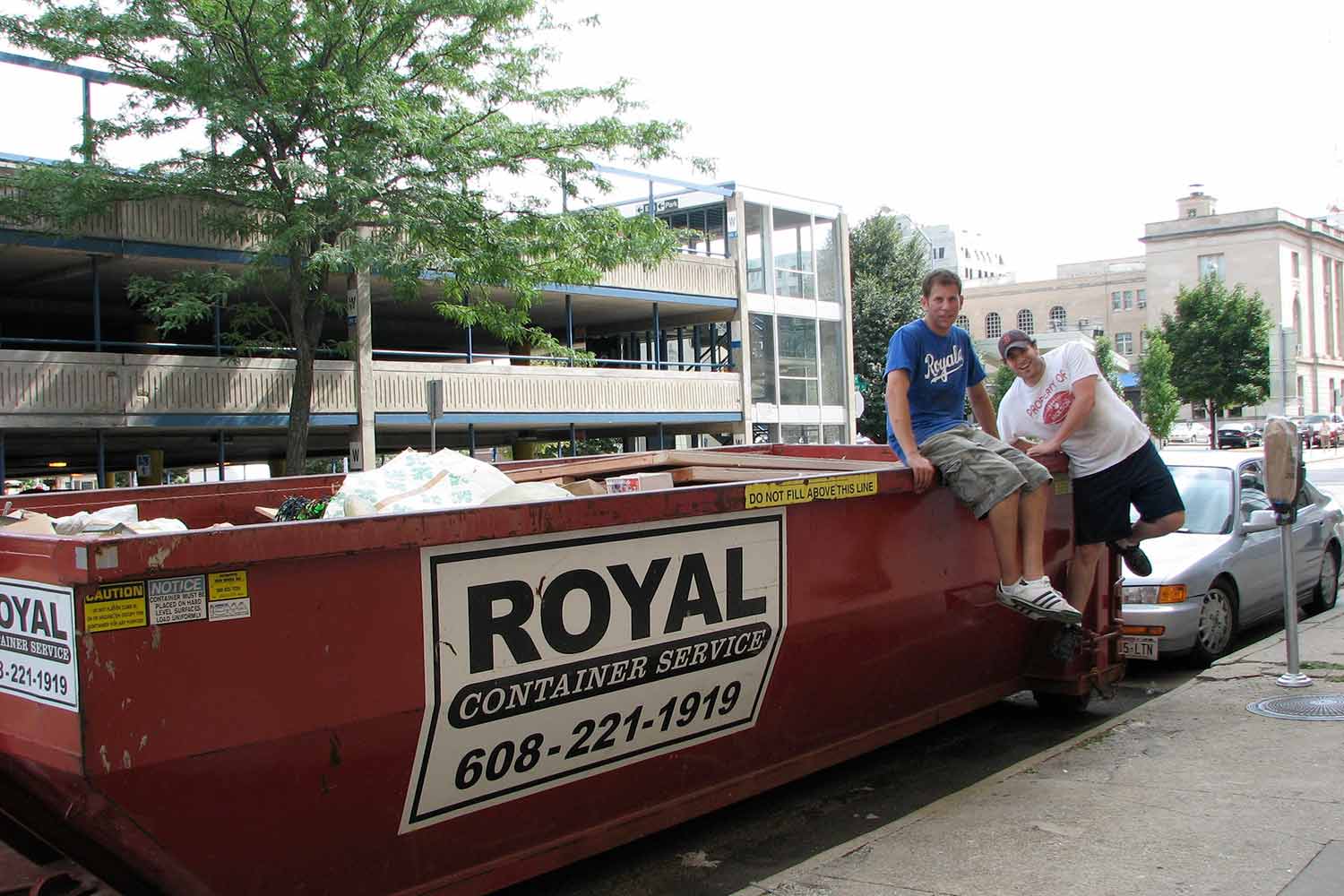
Gerding: It was also pretty grotesquely dirty and just really needed a lot of love to bring it back to its roots as a beautiful classic theater.
Aro: I’d say [Matt and Scott] are both very creative people. Scott Leslie, in particular, has wild ideas and I love his creative thinking about how a space should go. Scott had some thoughts about adding floors to the building.
Leslie: Let’s all just calm down. To the backstage, I think. Not externally. Internally.
Aro: Ultimately some of the ideas that we had just couldn’t be done, weren’t in the budget, but I think in the end they’ve got a really useful, flexible facility that so many different events can happen in.
Opening night: Mandy Moore and Ben Lee, Sept. 29, 2007
Gerding: It wasn’t really our first pick. We had some ideas of course and we pursued them — I think Kings of Leon was one that we went after pretty hard — but we were in the middle of remodeling the venue and the agent for Mandy Moore hit us up. She was routing a tour and it looked like she was going to land on Sept. 29, which was cutting it really close for the remodeling but it would’ve been the first possible date and we just decided to pull the trigger on it because it was a big name.
Lockett: We started off bubblegum. Mandy Moore. Yeah, that was something else.

Gerding: It certainly didn’t speak to the musical interests of Matt and Scott necessarily, but in hindsight it ended up being a really good soft opening for us just because it was not sold out and the crowd was pretty young. It gave our bartenders an opportunity to go through the motions and operations.
Mandy Moore, singer/songwriter and actress: You can now watch me every Tuesday night at 8 o’clock on NBC. #ThisIsUs [Editor’s note: Moore could not actually be reached for comment.]
2008 and beyond
Nick Nice: They’ve learned. That first year, there were some good shows and some bad shows.
Matteson: I think it’s important to put into context the kind of city Madison is and maybe the expectations of music fans like I was at that point. I wanted a music scene that was similar to a Chicago. But when you’d see a press release that would go out, or you’d go to Pitchfork and see all these tour [announcements], they weren’t coming to Madison, or Milwaukee for that matter.
Lockett: Quite honestly, we almost closed. Things were bad. Things didn’t click for us for a while. Up until that second year, things weren’t looking great until then.
Nick Nice: I can’t remember if it was year 1 or year 2, but they just got screwed when it snowed. It seemed like every Tuesday they had a show, it wasn’t like a huge snowstorm but it was just enough to screw up and make it so people wouldn’t go out.
Gerding: There was a lot of factors, but it took us a few years to get our heads above water. It was really like 2010 when we kind of noticed a turn. I think that was for a number of reasons, but I do think that we battled the [Club Majestic] reputation for a little bit too. I think that lingered for a while.
Chris Winterhack, former marketing coordinator, Majestic Theatre: In the beginning there was that stigma for a little bit — but by the time I was fully in [my] role it had kind of passed. And anybody who still had that view we kind of ignored because the way the theater was run and the shows that were booked kind of spoke for itself.
Leslie: As the city started growing up a little bit more, so did we. You think back 10 years ago and there’s no hotel on East Washington with a rooftop bar. It was a tire store. The Constellation and the Galaxie apartment buildings are, and where the Sylvee is being are built, those were car dealerships. East Washington was, I don’t want to say it was a disaster, but it was not any place that felt at all remotely as part of the downtown Madison experience. It felt like downtown Madison stopped the minute you got east of Webster Street.
Nick Nice: There’s this perception that there’s this wall at the top of State Street and that college students don’t even know anything beyond that wall. Majestic were the first ones to break down that wall, so to speak, through their promotions. They’d go on campus and they made sure to hire good people to network within the university.
Gerding: We put a major focus on trying to impact the culture of the student body here, trying to get students to come out and see live music. We noticed when we got here that nobody was really putting that much energy toward that, and so we very consciously tried to book shows that we thought would appeal to the student body and would get them down to King Street, convince them that it’s not that far from campus. And that process took a few years.
Nick Nice: They were the ones that I would say kind of spearheaded getting a younger demographic into this neighborhood. They knew what they were going for.
Gerding: It’s also a very complicated industry and it took us a long time to build up a reputation in the music industry, [a long time] to get booking agents to have their bands seek out the Majestic and want to play because they’ve heard it’s a great venue.
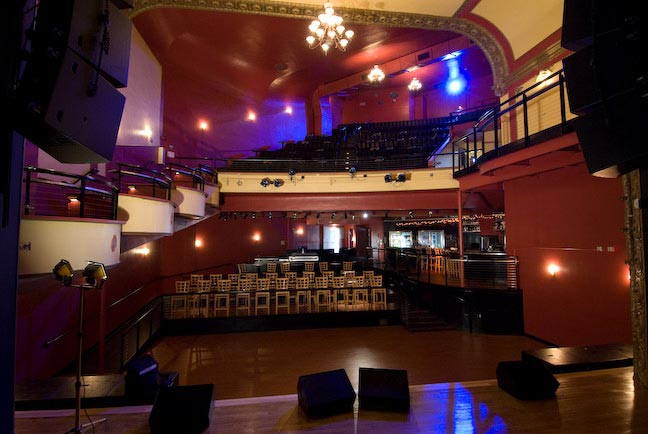
Evers: Matt and Scott made significant changes — both in terms of the physical space and in terms of overall vibe — to make the Majestic an artist-friendly space.
Winterhack: The selling point was that this was going to be a great experience, the dressing rooms were going to be clean, we’ll do everything we can to get a big crowd.
Matteson, now an artist manager at C3 Presents for acts such as Strand of Oaks, a recent Live on King Street headliner: I don’t think people truly realize just how hard it is to build those relationships and to build the trust of booking agents and artists that are going to come to place that they have never played before. And now on the management side, I’m on the other end of that. Are my artists going to be well taken care of? Are they going to be treated with respect and are they going to feel like they’re a priority when they get there? Not in any sort of diva way or rock star super A+ treatment, but just in the way you’d want to be treated in any business when you go there.
Dethmers: I think the competition probably made [High Noon and Majestic] each stronger. Both venues worked hard to book quality bands and provide good show experiences for fans, but I think we also needed to create unique events to set us apart. Ultimately I think that was a bonus for local musicians and promoters because it opened up more opportunities to play or book bigger stages.
Matteson: I saw Ryan Adams and Emmylou Harris are going to be there [also on Friday]. When I was living in Madison, if Ryan Adams and Emmylou Harris played there, I mean, like… Everybody says dream big, but my hope and expectation was just that they’d have great bands that played at the Majestic. It was never really my thinking that they’d go beyond that, and they’ve gone beyond that and then some.


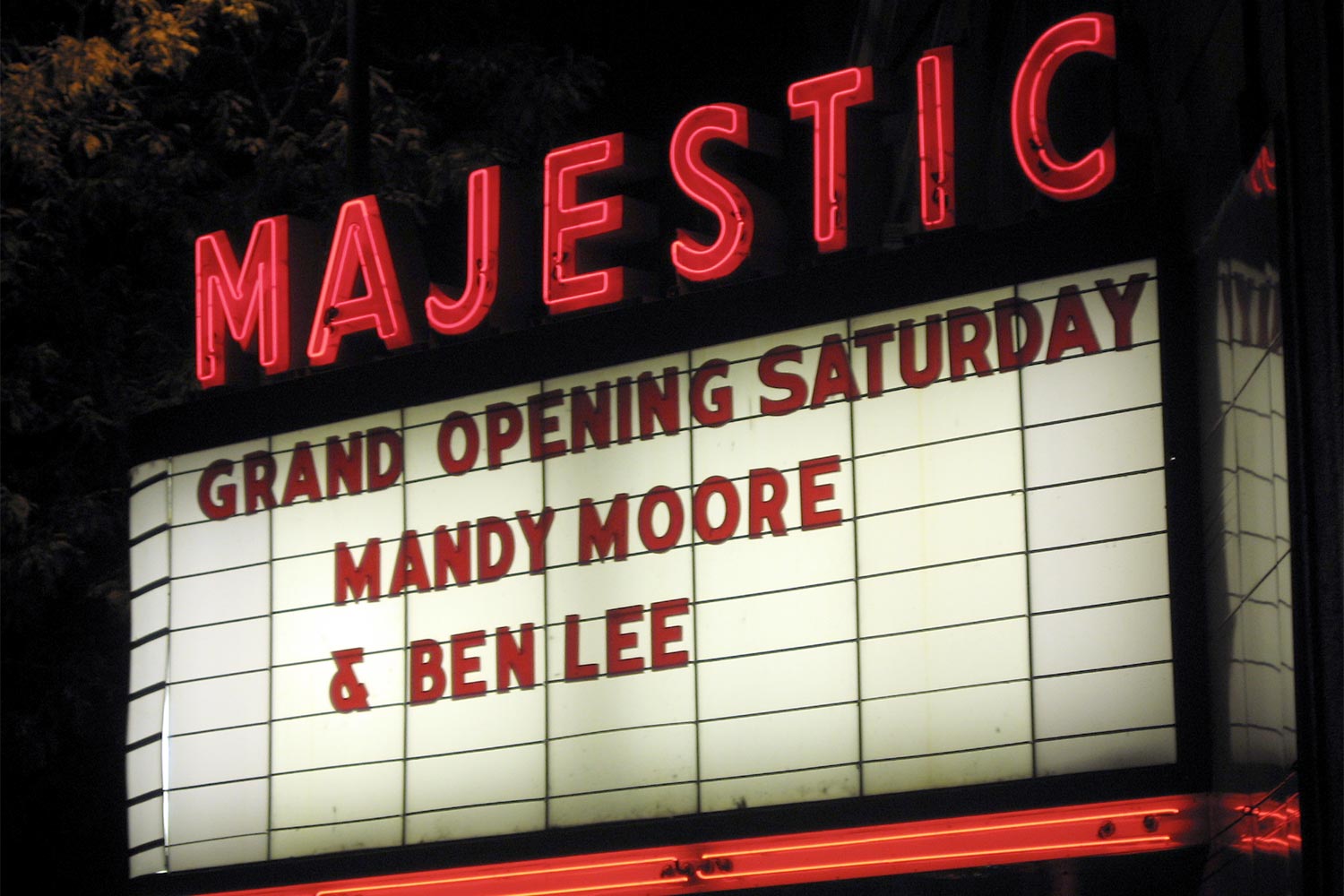
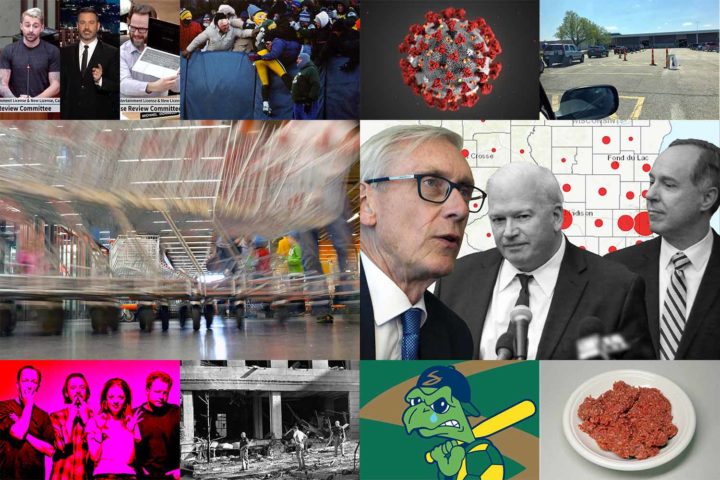

Comments